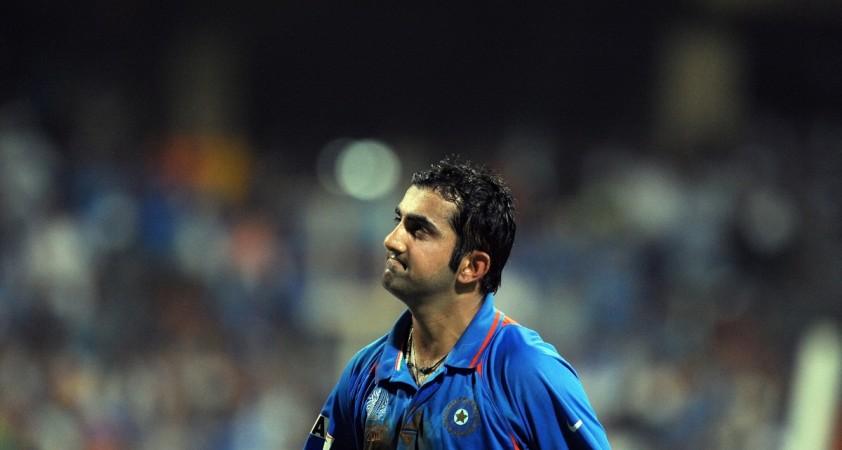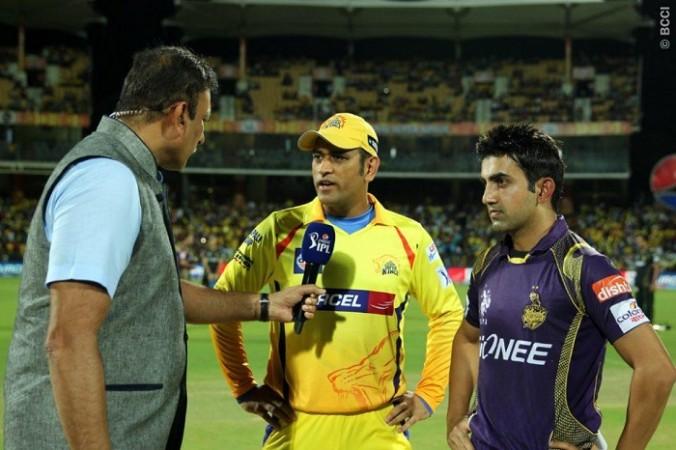
Gautam Gambhir has always been an outspoken cricketer. This has earned him praise but also created controversies. The latest salvo fired by the former India opener is a direct criticism of national selectors for not picking Ambati Rayudu in the World Cup squad.
Expressing his disapproval of selectors' decision in strong language, Gambhir said it is 'disgusting' that Rayudu has been judged according to his IPL form and not a long-term assessment of his abilities. These views, expressed in his column for a national daily, is the latest in a long line of provocative comments that Gambhir has made in his career.
Courting controversy
In 2010, he vented his spleen at Rajasthan Royals by calling its batsmen, except for Yusuf Pathan, ordinary and reiterating it forcefully. The very next day, in his column in a prominent newspaper, Gambhir boasted about speaking his mind and not wishing to appear nice. In 2013 season of IPL, there was a famous confrontation between Virat Kohli and Gambhir in the middle of the ground which left a lot of people surprised. When MS Dhoni's biopic was released, the former KKR captain made his dislike of such movies made known to the world.
The strong comments kept coming even after he announced his retirement. The Delhi cricketer delivered a substantial dose of criticism towards Mahendra Singh Dhoni, Virat Kohli and Ravi Shastri on a variety of issues, from the sacking of Anil Kumble to their leadership style. In his new avatar as a commentator, the left-hander has stirred the hornet's nest many times. His claim that Sanju Samson is the best keeper-batsman in India left Dhoni fans angry while criticism of Kohli's captaincy was another assertion of his lack of belief in the latter's leadership qualities.

Reasons for Gambhir's confrontational attitude
So, why does Gambhir continually act as agent provocateur? Is it just his nature to be feisty? Or is there a deep-seated resentment against the Indian cricket establishment? Perhaps, it's a mixture of all these things.
Gambhir's temperament has always been very different from that of his illustrious opening partner Virender Sehwag. The happy-go-lucky attitude of Viru was diametrically opposed to the sobriety of Gautam. Maybe, it was this gravity of nature that allowed him to bat for two days and save a Test for Indian in New Zealand during the 2009 tour.
He can also legitimately feel that the Indian cricket fraternity hasn't given him his due. When people talk about the famous 2011 World Cup final, it's invariably the innings of Dhoni that dominates the discussion. But people forget that Gambhir's knock was equally, if not more important. It was he who, along with Kohli, stabilised India's innings after the two big jolts in the form of Sachin Tendulkar and Sehwag's wickets.
By the time Dhoni came out to bat, the ball was hardly doing anything and Indian innings had developed a momentum. At the time he was dismissed, the match was almost completely in India's bag. Yet, his contribution in that game is hardly mentioned – despite him being the top-scorer. While Dhoni's efforts have been mythologised – not wrongly – Gambhir's heroics remain unappreciated.
So, a serious disposition and feeling of injustice has probably combined to put Gambhir on warpath. Different people react differently to situations. Perhaps Gambhir can tone down his aggression now that he has a microphone in his hand and not the bat.














